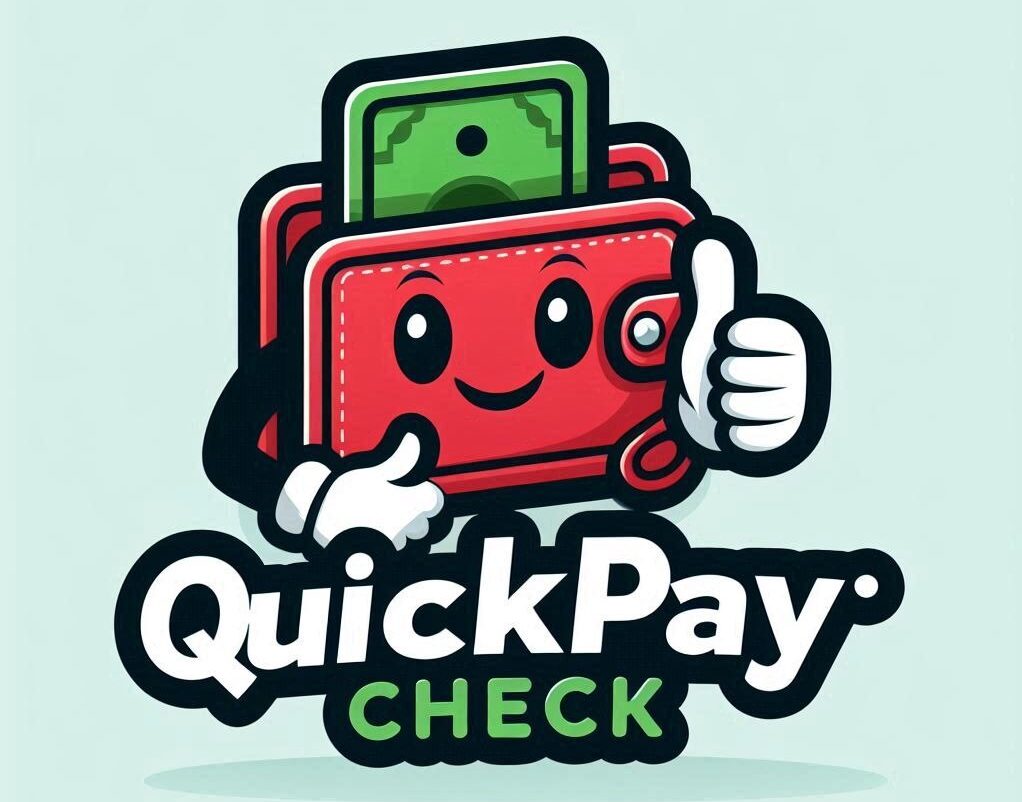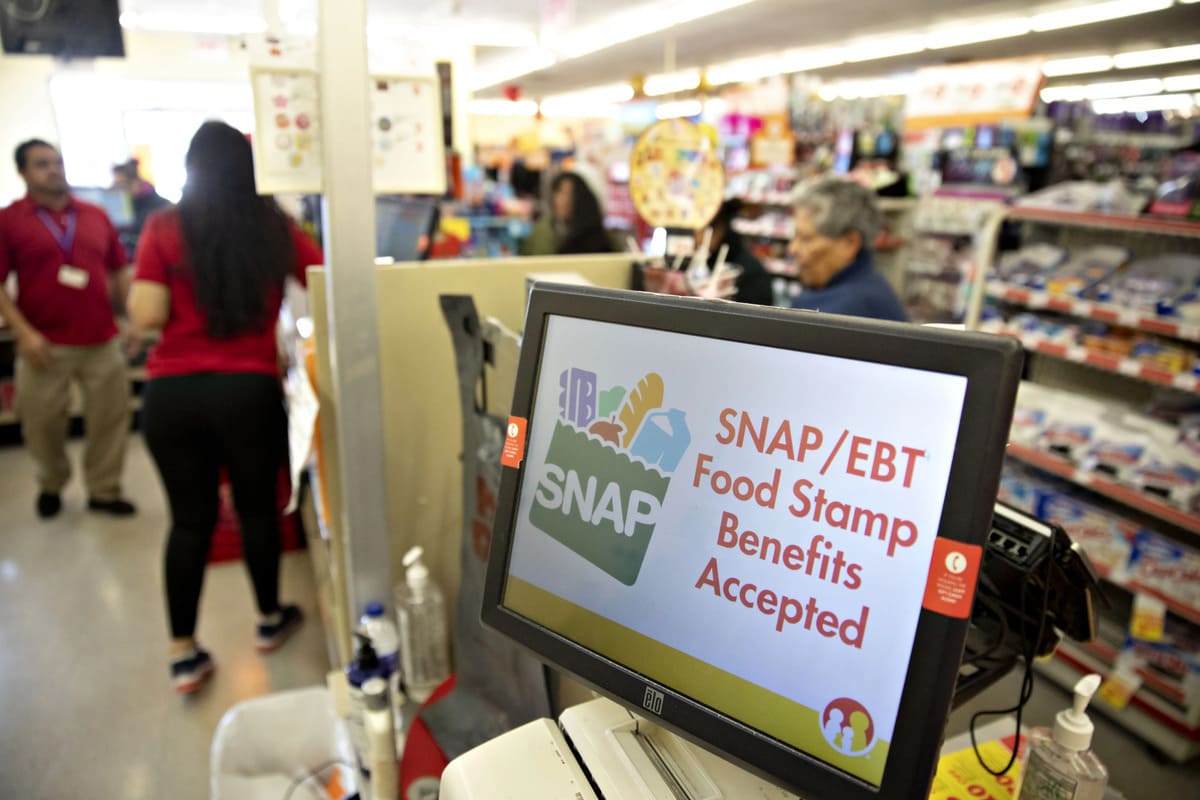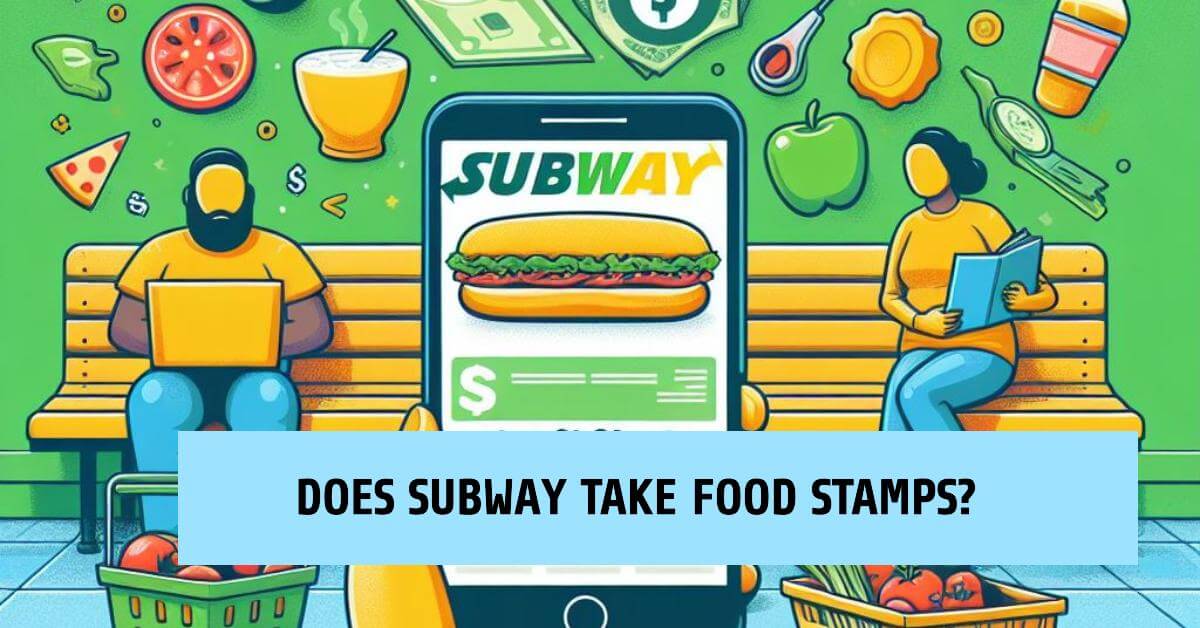Have you ever wondered if you could face jail time for issues related to receiving food stamp benefits? With over 41 million Americans relying on the Supplemental Nutrition Assistance Program (SNAP) to help feed their families each month, it’s no surprise that errors can occasionally happen. [[food stamp]] overpayments do take place, and some instances of fraud sadly occur as well.
But if you receive [[food stamp]] benefits, could innocent mistakes or intentionally providing false information land you behind bars?
The short answer is yes, it is possible to go to jail for food stamp fraud or the misuse of your benefits. However, for unintentional errors resulting in overpayments, prosecution is very unlikely. The penalties you may face depend greatly on the nature of the situation at hand. Typically you’ll be disqualified from receiving assistance for a set period and required to repay any excess funds received. Let’s take a closer look at how the system works so you can understand what does or doesn’t constitute potential jail time when it comes to [[food stamp]] issues.
Throughout this article, we’ll explore:
- What specific actions are considered [[food stamp]] fraud
- The range of penalties that can be imposed for violations
- When unintentional overpayments could potentially lead to charges
- Rules that if broken, may result in prosecution
- The process for being disqualified from receiving benefits
- The difference between administrative and court procedures
- What to do if formally accused of fraud
- Your rights throughout the process
- And more key aspects of this complex issue
Gaining greater insight on the intricacies at play can ensure you avoid situations that could restrict your much-needed assistance. Especially if errors arise, acting swiftly while understanding the process itself can be invaluable. So let’s get started!
What is Considered Food Stamp Fraud?
The [[food stamp]] program comes with extensive rules and requirements to qualify for benefits administered through the electronic benefits transfer (EBT) system each month. As a recipient, you have an obligation to provide full and truthful information throughout the application process as well as over the duration you receive assistance. Intentionally breaking program rules constitutes [[food stamp]] fraud. This could occur through:
Lying on Your SNAP Application
When initially applying for SNAP benefits, you must accurately report details regarding your household including income, expenses, resources, and the number of people residing with you. If you intentionally falsify any requested information to appear eligible when you do not meet the requirements, this constitutes fraud. The same violation occurs if you fail to fully disclose changes later on that would impact your eligibility or monthly allotment amount.
Trafficking Food Stamp Benefits
Exchanging your [[snap benefits]] for cash or other ineligible items is known as SNAP trafficking. This commonly takes the form of food stamp recipients using their EBT card to purchase products for another individual in exchange for money, often at less than face value. The [[supplemental nutrition assistance program]] strictly prohibits this fraudulent practice that unlawfully diverts program funds and violates the intent behind SNAP.
Purchasing Ineligible Items
Using your food stamp benefits to acquire anything other than grocery foods for home consumption goes directly against SNAP rules. You cannot legally purchase prepared hot foods, alcohol, tobacco, vitamins, medicines, or nonfood items. Breaking this regulation by buying prohibited products with SNAP funds would be fraudulent misuse.
Committing Retailer Fraud
Those who accept food stamps also must uphold specific program requirements and can face penalties for fraudulent violations. SNAP retailer fraud involves stores exchanging cash for benefits, allowing purchases of ineligible items, trafficking benefits with recipients, or falsifying records to appear compliant when violating rules. If caught conspiring in this type of fraud as a recipient, you would face prosecution.
Intentionally engaging in any of these fraudulent activities for the purpose of acquiring more SNAP benefits than your household is entitled to receive constitutes breaking program rules. If formally accused of [[food stamp]] fraud, you could face administrative penalties or criminal prosecution depending on the severity of violations. Generally, the more egregious examples of fraud warrant heavier penalties and higher likelihoods of potential jail time.
What are the Penalties for Food Stamp Fraud?

The penalties imposed for [[food stamp]] fraud vary case by case based on factors like:
- The nature of the fraudulent act
- If an innocent mistake versus intentional deceit occurred
- Whether it’s a first time or repeat violation
- The dollar amount involved
Punishments range from the required repayment of excess benefit amounts, to being permanently disqualified from receiving any future SNAP assistance, to even serving jail time in extreme instances. Let’s look closer at the consequences you could potentially face:
Fines and Benefit Repayment
As a recipient found guilty of fraud, you will invariably have to [[pay back]] any resulting overpaid benefits you received due to your violation. The precise [[amount of the overpayment]] would be calculated during an investigation comparing the assistance you collected versus what your actual eligible allotment would have been. Depending on severity, you may also face court ordered fines and fees on top of repayment.
Disqualification from Receiving SNAP Benefits
A finding of fraud will lead to a recipient being disqualified from obtaining food stamp benefits for a set period. The length of this [[disqualification]] depends on whether it is a first, second, or third offense. Penalty timeframes are:
- 12 [[months for the first]] violation
- 24 [[months for the second]] violation
- Permanently [[disqualify|disqualified]] after the third violation
This serves as punishment to eliminate benefits during that duration as well as deterring further fraudulent acts in the future.
Potential Jail Time
For the most severe cases with large dollar amounts involved or repeat violations, courts can sentence longer jail terms alongside imposing hefty fines. However, for more minor first time offenses, alternatives like probation or required community service tend to be much more likely options. Jail time acts as a last resort for egregious fraudulent acts thieves committing systemically.
Generally, the approach focuses first on recovering misused funds and restricting benefits for set timeframes unless an individual’s violations clearly warrant involving the judicial system for harsher punishment. Prosecution aims to deter broad scale abuse rather than targeting those attempting to provide for their families. Still, [[food stamp]] fraud should not be taken lightly since landing in jail remains possibility in some situations.
Can You Go to Jail for Unintentionally Being Overpaid Food Stamps?
Mistakes happen, especially when relying on overstretched government agencies accurately calculating complex financial eligibility requirements for SNAP on an ongoing basis. Overpayments contributing to recipients getting more benefits than entitled based on temporary changes in income and other factors occur frequently. But if later discovered can raise questions of fraud even when no intention to deceive took place on the recipient’s part. Could innocently ending up with an [[food stamp]] overpayment somehow still land you a jail sentence?
The simple fact of unintentionally receiving excess SNAP benefits or even neglecting to report an overpayment does not constitute an illegal act alone. You won’t face criminal charges purely for those mistakes without fraudulent intent involved.
However, failing to disclose an overpayment could potentially trigger misdemeanor charges for continued false certification in some circumstances:
- If you fail to report your overpaid amount within your state’s established timeframe after discovery, often 60 days
- Allow the excess amount to accumulate over longer periods without notifying SNAP offices
- Intentionally cash out extra SNAP funds knowing they resulted from agency errors
Once identified, you would have to [[work out a payment plan]] to [[pay back]] the entirety of overpaid amounts received over time. Having complications doing so or missing payments could invite stricter collections consequences. But avoiding jail still remains probable if no deliberate deceit was ever involved. Simply making mistakes rarely leads to prosecution.
Still, unintentionally retaining excess aid might hint at confusion over intricate regulations recipients contend with. That’s why promptly contacting your caseworker as soon as any overpayment emerges proves critical for avoiding heightened repercussions. And consulting legal aid clinics specializing in public assistance issues can clarify the nuances around occasionally stumbling into non-fraud overpayments during your participation in SNAP.
What Rules Can Lead to Jail Time If Broken?
We’ve covered acts that undoubtedly constitute fraudulent misuse of your food stamps. But there are also strict regulations all recipients must comply with to qualify for continued benefits without resorting to deceit. Even simple failure to adhere to certain guidelines could trigger disqualification periods or at worst, potential jail time in isolated instances if infractions seem systematic.
Here are four key food stamp provisions that could lead down a slippery slope if repeatedly violated:
1. Do Not Misuse Benefits to Purchase Ineligible Items
As outlined previously, [[snap benefits]] handed out each month can only legally go toward food purchases meant for home consumption by your household. Cavalierly flaunting restrictions by buying alcohol, tobacco, prepared hot foods, medicine, pet supplies, paper products, or other prohibited items with your EBT card at retailers could signal intentional misuse.
Likewise, acquiring non-allowable products violates program rules. So after a pattern of doing so triggers warnings, continuing the behavior might graduate sanctions to fraud investigation and stiff penalties. Tread very carefully around this regulation.
2. Never Resell Food Purchased with SNAP Benefits
To legally [[get food]] through SNAP, items are meant solely to nourish your own household. Reselling allowed grocery products bought using program funds essentially converts benefits into income for yourself. Systematically doing so without reporting earnings from the practice clearly violates guidelines. If establishing a pattern, investigators can treat ongoing occurrences as attempted fraud via deception.
3. Avoid Losing Purchased Items Frequently
SNAP requires you shop responsibly with provided benefits meant to sustain your family’s diet. Carelessly allowing reusable products to spoil and become discarded on a regular basis contradicts responsible stewardship of taxpayer funds. Doing so consistently might prompt warnings and lead investigators to start monitoring your compliance more closely.
4. Never Traffic Food Stamp Benefits
As we’ve stressed, the illegal practice of trading food stamps for cash seriously threatens program integrity through misdirection of aid. Outside blatantly selling off benefits, you should also refuse participation even if acquaintances persuade you to briefly provide your card to complete purchases. That still constitutes unlawful usage you want to avoid at all costs.
Investigators scrutinize recipient activity searching for patterns of noncompliance that could become qualified as fraud. While a few sporadic mistakes generally prompt guidance toward compliance, habitual issues or unwillingness to correct violations frequently convert to sterner penalty territory. Heading down an illegal trajectory risks landing at disqualification and even potential jail time depending on actions taken.
Above all, avoiding anything resembling deliberately providing dishonest information on applications or unlawful usage of aid received represents the surest method to remain in good standing. Using benefits properly for feeding your family might pose challenges but prevents far worse hardships down the road.
What is an Intentional Program Violation in Relation to Food Stamps?
When investigators at SNAP division offices suspect a recipient committed intentional infractions serious enough to constitute fraud based on evidence collected, this initiates an Intentional Program Violation (IPV) process. Food stamp workers formally notify recipients of suspected transgressions through mailed notices summarizing alleged acts, connected overpayment amounts needing repayment, along with any resulting disqualification period lengths ranging from 12 months to permanent loss of benefits.
These IPV notifications provide case specifics while outlining rights to refute allegations through requesting a hearing. Choosing that path leads to separately scheduled Administrative Disqualification Hearings where both government representatives and recipients (who may secure counsel) argue evidence regarding violations before an impartial arbiter. Those proceedings can uphold or overturn findings detailed in the original IPV notice.
However, signing an included waiver form forfeits your right to challenge allegations meaning any outlined disqualification period automatically goes into effect on the listed date. Doing so also solidifies repaying determined overpayment amounts but potentially avoids harsher consequences like criminal charges. Either choice poses positives and drawbacks to weigh very carefully before responding to IPV correspondence should you ever receive any.
When Would Food Stamp Fraud Cases Go to Court Rather Than IPV?
As described in the IPV process above, SNAP division offices generally handle accusations of violations through administrative proceedings aiming to verify suspicions and apply appropriate penalties if substantiated. These agency-adjudicated measures allow efficiently investigating allegations while recouping misused funds from recipients caught abusing guidelines.
Still in particularly egregious examples of food stamp fraud exceeding specific state thresholds based on factors like vastly inflated amounts securing illegally or interstate criminal networks, offices must involve judicial authorities. Referrals for criminal prosecution through public court systems result from:
- Repeated or systematic fraud despite prior administrative penalties
- Large overpayment dollar totals signalling outsized scope
- Interstate crime rings indicating highly organized deception
Prosecuting attorneys largely filter out cases failing to demonstrate especially malicious levels of fraud relative to program size. Goal remain protecting integrity of food assistance for needy individuals who utilize SNAP properly. But also harshly punishing unrepentant cheaters gaming system to line pockets through deception and hampering the deserving from obtaining aid.
Once criminally indicted and arrested, defendants face prospects of conviction carrying:
- Lengthy jail sentences
- Five years probation
- Community service
- Excessive fines
- Mandatory restitution of misappropriated funds
- Permanent disqualification as recipients
- And leaving them with permanent fraud felony records
While even the IPV process imposes often devastating losses of nutritional benefits for considerable timeframes already, criminal prosecution raises stakes through depriving liberty alongside benefits. All those consequences demonstrate why avoiding activity remotely suggesting systematic fraud proves vital and always seeking legal guidance if formally accused stands paramount.
What Should You Do If Accused of Food Stamp Fraud?
Given the severe administrative or criminal consequences an investigation into food stamp fraud allegations might bring, knowing how to respond if ever facing accusations remains imperative to protect yourself. Attempting to navigate procedural complexities and mount a viable defense on your own rarely goes well. The wisest route includes:
1. Seek Expert Legal Assistance Immediately
Retaining an attorney specifically focused on public benefits who understands intricacies of how SNAP noncompliance accusations proceed through administrative and criminal channels offers invaluable support. They know how constructing an argument denying or mitigating infractions requires intimate expertise in food stamp regulations.
Counsel also negotiate repayment structuring if overpayments stick plus waiver forms granting provisional only admission if fighting review hearings promised success. All difficult waters to traverse alone.
2. Gather Documentation Supporting Your Case
Have lawyers request full documentation files related to allegations from SNAP administrative offices. Thoroughly review financial records, previous fillings, along with notes from fraud hotline reports and investigative caseworkers. Look for inaccuracies while collecting verifyable evidence supporting your compliance where possible.
3. Build Context Around Any Violations
Work closely with counsel to construct clarifying narratives behind any confirmed reporting issues or usage of funds violating SNAP guidelines. Demonstrate mitigating circumstances like health crises, family emergencies, or lapses due to homelessness rather than criminal intent to defraud. Documentation helps quantify impact from those life disruptions.
4. Line Up Witnesses To Speak On Your Behalf
If former caseworkers, shelter administrators, clergy, or community references familiar with your specific challenges can compellingly vouch for character, invite them to testify during hearings. Or provide impact statements against harsh penalties detrimentally affecting rehabilitation. Their perspectives often resonate strongly with arbiters.
Securing assistance navigating responses, strategically challenging unfavorable findings, and achieving least damaging outcomes to a fraud accusations represents vitally important. Don’t resign yourself to purely accepting steep administrative penalties or potential jail sentences without an expert defense.
What Happens in a Disqualification Hearing for Food Stamps?
As referenced when discussing Intentional Program Violation notices, SNAP recipients facing allegations of fraud leading to pending disqualification periods and connected overpayment amounts have two options to potentially override initial determinations established by investigators.
They may either sign attached waiver documents conceding violations outlined occurred and agreeing to prescribed penalties of losing benefits access for set timeframes plus repaying accrued debts. Or alternatively demand hearings allowing arguments against unfavorable findings be presented before impartial arbiters who them render binding decisions upholding or rejecting determinations.
The Administrative Disqualification Hearing Process
Upon electing formal hearings either directly on IPV notification forms or when filing separate requests after initially waiving, SNAP division offices schedule proceedings before judges uninvolved from specific investigations. Key aspects of the full disqualification hearing process include:
- State Evidence Collection – Government representatives must provide comprehensive documentation substantiating initial fraud determinations and overpayment calculations for judges to review beforehand.
- Opening Arguments – Both sides outline core positions on allegations with state beginning followed by defense before transitioning into questioning and witnesses.
- Testimony and Cross Examinations – Investigators familiar with cases first describe alleged acts defrauding SNAP through deceptions on recipient sworn statements or other intentional program violations. Defense then counters using testimony from accused plus any supporting witnesses brought regarding mitigating circumstances behind concerning patterns. Thorough questioning of all testimonies occurs to establish validity and relevance.
- Written Closing Arguments – Both state and defense submit final written legal justifications summarizing key evidence arguments and appropriate verdicts aligning with SNAP hearing regulations and legal precedents. Also suggesting penalty guidelines if guilt found.
- Binding Rulings – Judges finally weigh presented legal and testimonial evidence before deciding whether allegations meet thresholds meriting fraud violations or if substantial doubts of intentional deceit raise reasonable possibility of unintentional client errors. Verdicts either clear defendants or assign disqualification periods and overpayment repayment structures.
Navigating those proceedings demands properly prepared and argued cases extending opportunities for acquittals or penalty reductions where practical. Thus securing experienced counsel for guidance though processes again rates highly advisable.
How Do They Determine if Fraud Occurred?
Judges base administrative disqualification hearing verdicts upon preponderances of presented evidence rather than more stringent reasonable doubt standards used criminally given civil burdens of proof. Their chief determinations weigh whether information inaccuracies or program violations stemmed primarily from intentional efforts to hide changes materially impacting legal eligibility and benefit allotment calculations. Or alternatively could such discrepancies be reasonably attributed to recipient confusion or honest mistake?
Intent markers considered heavily slanting scales toward fraud include instances like:
- Sworn application statements contradicting subsequent reviews of income records indicating unreported wages would show intention to provide false qualifying information. As would failing to disclose opened savings accounts or registered vehicles found later which may have surpassed resource limits if known.
- Eyewitness accounts or surveillance footage proving recipients illegally exchanged EBT cards for cash demonstrate prohibited benefit trafficking. Likewise violations if seen purchasing extensive amounts of prohibited non-food items clearly showing intentional misuse.
- Investigators uncovering evidence of patterns like repetitive uses of benefits at first followed soon after by requests for replacements hinting benefits being sold for profit rather than properly used for family nutritional purposes.
What Repayment Methods Can They Use to Collect Overpayments?
Those judged to have committed food stamp fraud and received excess benefits owed will likely see state agencies pursue overpayment collections through methods like:
- Reduction of any current SNAP monthly benefits by designated percentages until repaid.
- Garnishing wages from employers subtracting amounts from paychecks toward obligations.
- Seizing state and federal tax refund dollars and applying funds against balances due.
- Potentially sussing other government benefits paid out to deduct overpayment sums.
- Obtaining civil court orders mandating fixed repayment structures with interest until satisfied.
- Referring defaulted amounts to external collection agencies pursuing consumer debts.
Ideally negotiating reasonable repayment plan terms directly with state administrators offers the best path to steadily resolving debts without further actions taken against recipients. But ignoring increasing notifications and requests for communication regarding overpayment collections often motivates more aggressive debt recovery measures.
What are Your Rights in an Overpayment Case?
Those accused of owing food stamp overpayments still retain certain rights like:
- Receiving written documentation from administering agencies outlining calculated overpayment basis and collection methods intended for use.
- Ability to request detailed explanations from caseworkers regarding overpayment root causes and specific amount derivations.
- Options to dispute identified overpayment existence itself or specific calculated amounts.
- Rights to hearing appeals before neutral third party arbitrators to contest substantiations of overpayment findings.
- Continued unadjusted benefits while awaiting appeal hearing judgments in most circumstances.
Exercising rights by first seeking explanatory paperwork and clear accounting from state administrators sometimes reveals calculation errors or new evidence decreasing required repayments. Appealing through hearings also forces deeper investigative scrutiny and objections against unfavorable conclusions. And ensuring no inappropriate benefit suspensions throughout often lengthy appeal scheduling delays reduces hardships beforehand.
Fully exploiting abilities to question and challenge administrative overpayment findings offers opportunities to possibly overcome, adjust, or mitigate repayment burdens through pointed objections backed by reasonable evidence. Never accept determinations blindly.
When Can You Keep Getting Benefits During the Appeal Process?
Losing crucial food assistance issued through SNAP while fighting conclusions of violations and overpayments through hearing appeals inflicts undue nutritional hardships on recipients often already facing economic struggles. Administrative policies allow continued benefits assistance at present levels for appeal filers having:
- Requested hearings in writing within outlined timeframe limits since overpayment notices received, usually 60 days.
- Assertions deem reasonable by legal guidelines about potential mistakes within agency findings or calculations.
- No previous offenses repeating identical compliance disputes establishing negative recipient patterns.
However simply claiming disagreements over findings or even innocence ultimately proves insufficient if subsequent legal reviews determine high probabilities of substantial misrepresentation or deception likely driving the established overpayment itself. Benefits leave the appellant shouldered then with even deeper hunger and financial burdens hampering the pending hearing defense.
Conclusion
Attempting to definitively answer whether simply receiving food stamps opens possibilities for jail time given program intricacies and oversight proves overly simplistic. Realistically only intentionally violating rules rises to that level by committing fraud through deceit or deception. Still confusion between unintended mistakes causing overpayments and misusing benefits constitutes a wide gray area carrying consequences like certain repayment and temporary aid suspensions.
Seeking knowledgeable guidance identifying distinctions and defending your specific situation offers the surest protection if suspected of any SNAP infractions. Avoid opportunities for violations whenever feasible. But if formally accused of abuse, immediately contact legal aid clinics and begin mounting rigorous rebuttals against all unfavorable conclusions. Doing so presents the best possibilities for overturning adverse findings through what often becomes a prolonged and complex administrative review process. And should mistakes occur at any point, admitting errors and negotiating equitable solutions represents the wisest path forward.







